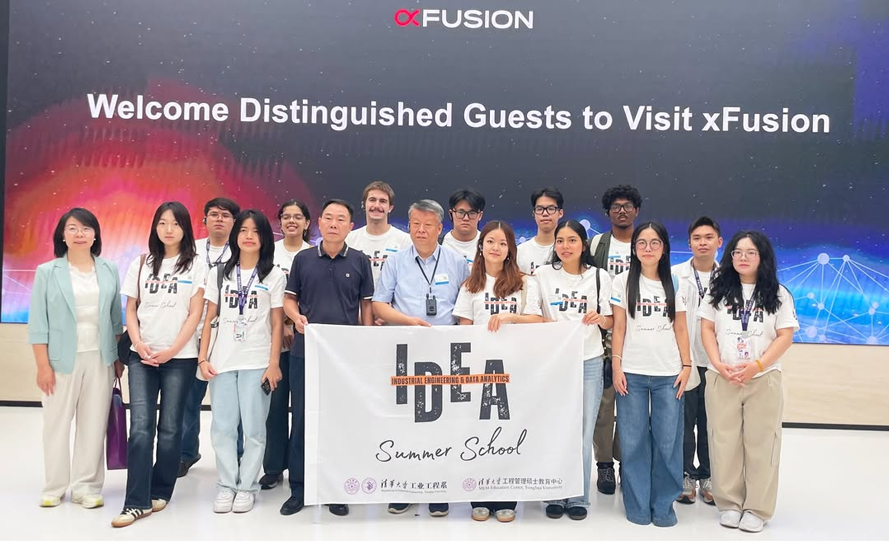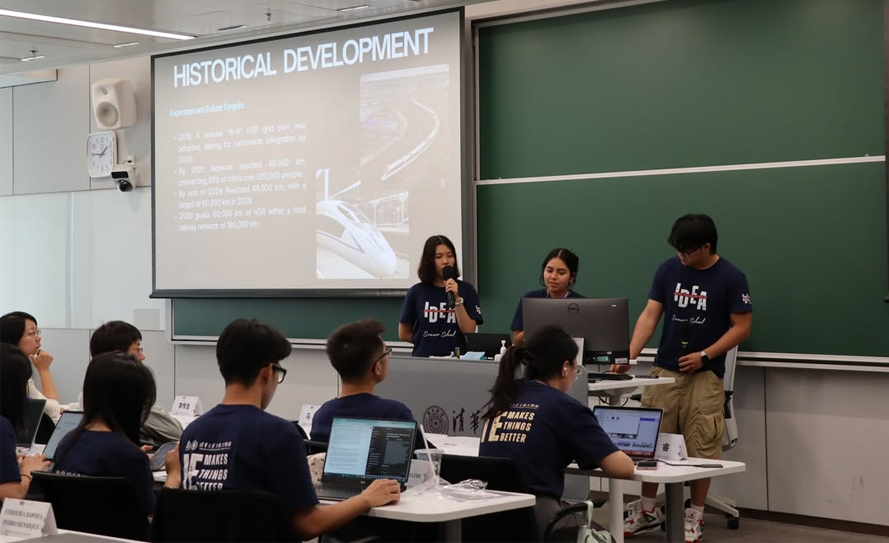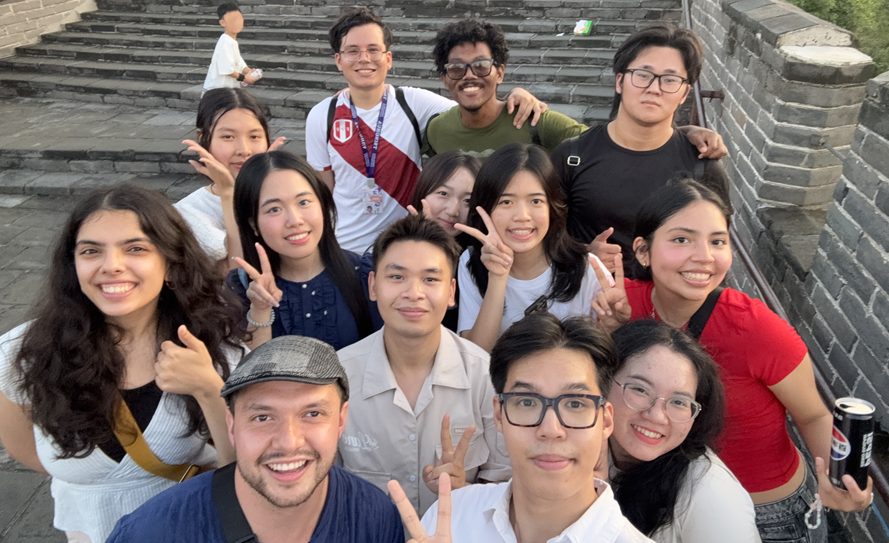In July, business engineering students Pamela Solange Prudencio Lezama and Arturo Alvarez De La Torre Sequeiros traveled to Beijing to participate in the Industrial Engineering and Data Analytics (IEDA) academic program organized by the Department of Industrial Engineering at Tsinghua University, hailed as the “Chinese MIT" for its excellence in science, technology, and innovation. Through the experience, coordinated alongside the Center for China and Asia-Pacific Studies (CECHAP), the two students were able to expand their learning horizons, spend time with international students, and gain insights into the dynamics of the Asian country.

A unique opportunity to grow
Pamela was motivated to apply by her enthusiasm for Asia: “I have always taken great interest in its culture, history, and the way it has managed to combine tradition with technology. I felt this was a unique opportunity to experience something different and enrich my education." For his part, Arturo stresses the strategic importance of the opportunity: "China is a fundamental part of the global future, both economically and technologically, and I considered this a key experience to better understand its role and dynamics."
This initial eagerness was complemented by the support of CECHAP, which was vital in the application process. Pamela notes the assistance with the visa procedures, which were “complex and involved many documents," while Arturo cites the direct communication with the host university as important in allowing everything to go smoothly.

Class-based knowledge and multicultural learning
Once at Tsinghua University, the students immersed themselves in a program that combined courses on international logistics, business innovation, sustainability, and smart production systems. Pamela found the international logistics course to be particularly helpful in furthering her understanding of how global supply chains rely on artificial intelligence. Arturo, on the other hand, singles out smart production systems: “It was one of the most interesting classes because it combined advanced theory with practical examples of Chinese companies that are leaders in innovation."

The lessons were not limited to the classroom. The time the students spent with peers from different countries expanded their learning all the more. Pamela comments: "I made friends from India, Brazil, South Korea, and Vietnam. it was very enriching to get to know their cultures and ways of thinking." For his part, Arturo “shared activities with students from Asia, Europe, the Americas, and Africa, which taught me how to work in teams with diverse perspectives." This multicultural dimension made the experience a true laboratory of global collaboration.

An immersion in life in China
The exchange also let the students discover everyday life in Beijing, marked by its contrast between tradition and modernity. Pamela was struck by the fast pace of life and the pervasive digitalization: “Everything is designed to be done by cell phone, from paying at a store to using the subway." Arturo, in turn, mentions the discipline, respect for education, and long-term outlook that he perceived throughout Chinese society.

The Chinese capital was also a trove of cultural discovery. Pamela was impressed with the city's organization: “The subway takes you anywhere and is very easy to use." Arturo describes Beijing as “a vibrant, historical, and technologically advanced city where tradition coexists with modern skyscrapers."

Support for training at the UP
Both students acknowledge that their preparation at the Universidad del Pacífico was vital in ensuring they made the most of the experience. Pamela values soft skills such as adaptability and empathy, which allowed her to thrive alongside people from different cultures. For Arturo, the UP's emphasis on leadership and communication gave him the confidence to lead teams during group activities.
They also made direct connections with their courses. Says Pamela: “During Value Engineering Management we did a supply chain simulation that came up again at Tsinghua, and that gave me a lot of confidence." In Arturo's case, “the UP's solid foundation in critical thinking and technical knowledge was key to my quick adaptation to such a demanding academic environment."

Looking ahead
Pamela and Arturo's experience at Tsinghua University reflects the Universidad del Pacífico's commitment to an international education that gives students opportunities to strengthen their professional profile and prepare to lead in an interconnected world. These exchanges not only enrich students' academic development but also consolidate the university's mission to train leaders with purpose who can make a global impact from Peru.